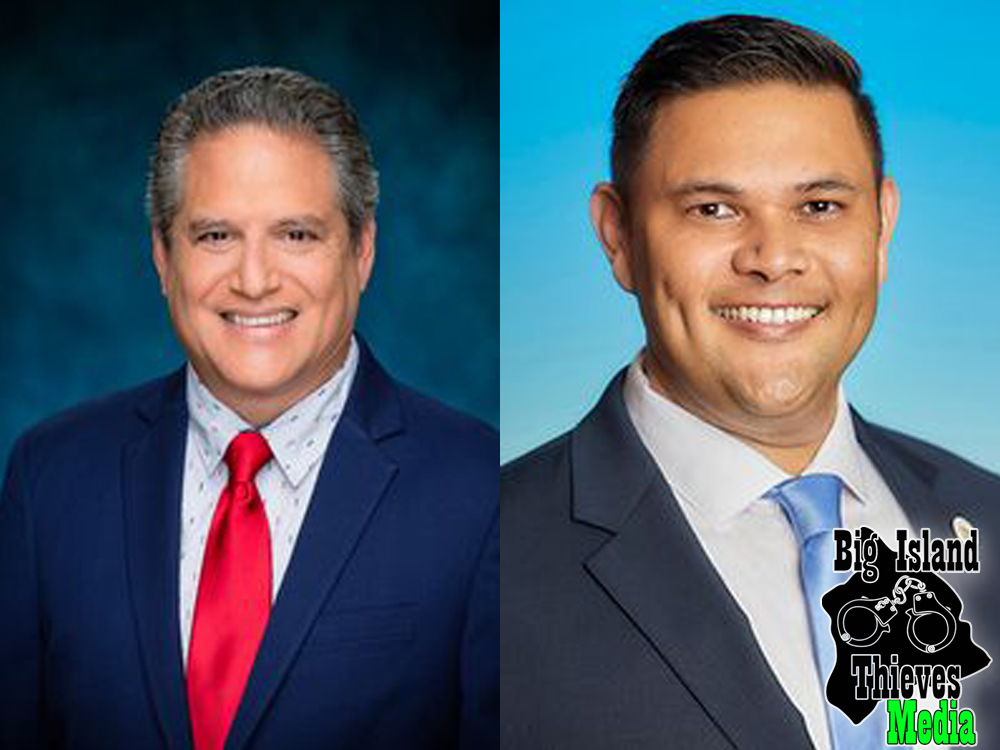Jamie Kalani English, 55, of Hana, Maui, and Ty J.K. Cullen, 41, of Waipahu, Hawaii, pleaded guilty today before Senior United States District Judge Susan Oki Mollway to separate Informations charging each of them, respectively, with one count of honest services wire fraud. The Informations charge that English and Cullen accepted multiple bribes in return for performing, and agreeing to perform, official legislative acts on behalf of a Hawaii businessperson. Each defendant faces maximum penalties of 20 years imprisonment and a fine of $250,000 at their sentencings, which are set before Judge Mollway on July 5, 2022.
Court documents and information provided in court detailed a series of bribes paid to English by a Hawaii businessperson, identified as “Person A” in the Information, over the course of several years. More recently, in June of 2019, English requested that Person A provide him with two hotel rooms in Las Vegas for his use while attending a concert. In return for the rooms, English later emailed Person A a draft legislative report concerning cesspools which could directly benefit Person A’s company. Also in June 2019, English asked Person A to “host” English and his family at a local Honolulu restaurant for dinner. Person A told English he could not attend, but provided $500 to English for the dinner, which English accepted.
In January 2020, English introduced into law a Senate bill involving cesspools that could directly benefit Person A’s company. In return, Person A paid English $1,000. On March 11, 2020, Person A met with English and offered him $10,000 in cash to kill the cesspool bill. English accepted the $10,000 stating “it’s easy to kill bills.” Due to the Covid 19 pandemic, the bill did not advance.
In January 2021, English accepted another $5,000 from Person A in return for anticipated legislative assistance to Person A. During a subsequent law enforcement traffic stop, English hid the $5,000 under the vehicle’s floor mat.
Similarly, court documents and information provided in court detailed a series of bribes paid to Cullen over the course of several years by an individual also identified as “Person A” in the Information pertaining to Cullen. Cullen initially accepted casino chips in New Orleans from Person A and later supported legislation that would benefit Person A’s company. More recently, in September of 2019, Cullen accepted $5,000 from Person A for anticipated legislative assistance that would benefit Person A’s company. Cullen subsequently accepted payments in the amounts of $3,000 in December 2019, $5,000 in January 2020, and then $10,000 on March 10, 2020, $2,000 in June 2021 and $5,000 in October 2021. The payments Person A made to Cullen were for the purpose of influencing Cullen to support or manipulate legislation that would benefit Person A’s company.
On their annual mandatory gift disclosure reports, English and Cullen failed to report any of the bribes and gifts paid and given to him by Person A. As a part of their official gift disclosure submissions, English and Cullen emailed this false and misleading disclosure form, thereby using interstate commerce.
The investigation in the case was conducted by the Federal Bureau of Investigation. Assistant U.S. Attorneys Ken Sorenson, Micah Smith and Michael Albanese of the District of Hawaii are prosecuting the case.

